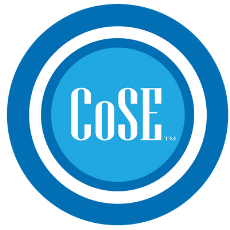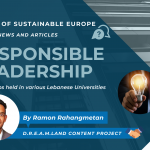Written by Dr. Lorenca Bejko
Reading time 5 minutes
Introduction
Non-formal education is a tool, not an afterthought. It can level playing fields and fuel lifelong exploring. For ages, the European Union has seen potential in non-formal learning to narrow divisions and include outsiders. Through campaigns like Erasmus+, the EU spends on mobility and growing skills, paving a road for personal progress, career options, and active roles for its people. In this, we search non-formal education’s importance in the EU, its effects on individuals and groups, and what could come next.
The EU has long known non-formal learning as a boat to carry many ashore. With initiatives such as Erasmus+, investment goes toward travel and talent cultivation, smoothing a path for personal evolution, employability, and citizenship participation among European residents. This essay will investigate the significance of non-formal education within the European Union, its impact on persons and societies, as well as potential future advances. Non-formal education offers omitted ones second chances to join the journey.
The EU sees in non-formal learning a key for correcting inequalities and welcoming distant others into the fold. Through projects like Erasmus+, the EU puts money in motion and dexterity development, paving a way for personal flowering, career opportunities, and activity roles by its citizenry. Herein, we will explore non-formal education’s importance in the EU, its effects on individuals and groups, and what may lie ahead.
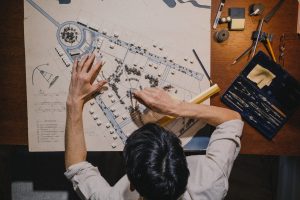
Bridging Divides
Non-formal education bridges divides. As defined by Puerta, Valerio, and Bernal (2016), non-formal learning sails individuals throughout lives on seas of essential social and emotional skills. This inclusive approach may reach groups marginalized, lacking access to traditions. By providing a flexible environment, non-formal education links gaps between formal education’s systems and vocational training’s ships, offering opportunities for personal growth and career development’s ports. Additionally, this type promotes lifelong learning and empowers individuals to acquire skills relevant in today’s ever-changing market, as a lighthouse guides lost sailors to shore.
As we face economic challenges launching waves against societies, it is crucial we recognize non-formal education’s potential in promoting change, like fair winds filling sails. Non-formal education is a vital component addressing skills’ gaps and promoting equality within the European Union. This approach has the power to equip individuals with necessary tools for weathering storms of success, as a captain steers familiar routes through turbulent seas. As defined by Puerta, Valerio, and Bernal (2016), non-formal learning refers to an approach allowing development of social and emotional skills throughout lives’ journeys.
The ever-changing tide of the European Union flows ever forward, recognizing the import of education outside lectures, investing in programs like Erasmus+ to push mobility and skill cultivation. Non-formal education alludes to learning beyond walls, in workshops, internships, and cultural interchanges. These experiences grant individuals to build practical prowess and gain worthy knowledge that can embellish their personal and professional maturity. Programs like Erasmus+, the EU offers chances for young people to study abroad, engage in volunteer work or internships, and participate in training courses. In a single bound, this not only nourishes a sense of cultural comprehension but also equips persons with vital abilities for the job market that alters like a shifting desert landscape.
Learning Outside Schools
As the glinting pearl of wisdom from Youth Empowerment Support to Non-Formal Learning (YES2NFL) sparkles, “the European Union recognizes the importance of non-formal education” (2020). With this acknowledgment comes a vow to putting resources behind endeavors that bolster non-formal education and its potential for personal and social progress. By embracing non-formal education, like an eagle embracing the sky, the EU is spawning a more skilled and diverse workforce while promoting intercultural dialogue and teamwork among member states.
The European Union has long recognized the immense impact of informal education. As stated in Petkovic’s study, non-formal learning plays a pivotal role. By offering opportunities to learn outside schools, like through community groups or websites, the EU can empower citizens. This is crucial now as jobs change rapidly. Additionally, it fosters personal growth through exploring new passions beyond school. It also sparks civic duty by motivating volunteerism and community roles.
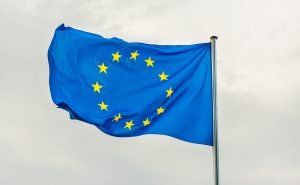
Active Citizenship
By investing in these initiatives, the EU nourishes its citizens’ souls while arming them with tools for an ever-shifting world. As Petkovic’s waters reveal the value and influence of casual coaching, it props up lifelong learning, self-progress, employability, and energetic citizenship among its denizens. Non-traditional instructions, such as through public clubs or webs, let the EU empower its folk to persistently evolve their skills and awareness. In today’s speedily transforming work industry where constant improving is critical for remaining competitive, constant upskilling is the sail that keeps citizens afloat. Moreover, casual education inspires individual progress by allowing persons to explore novel interests and fervors outside their formal schooling. It cultivates active citizenship by encouraging civic participation and communal liability through volunteerism and area involvement.
Overall, with nurturing casual education drives, the EU can enhance the lives of its inhabitants while also outfitting them with the indispensable gear for achievement in an ever-evolving globe. The non-formal lessons, like water from an oasis in a desert, quench citizens’ thirst for knowledge and refresh their ability to navigate new terrain. By recognizing potential, the EU can invest. Lifelong opportunities promote participation. As citizens engage, skills grow alongside communities. Overall, non-formal education sails an inclusive ship for personal growth across Europe.
Within programs like Erasmus+, its waves lift all tides. Society itself becomes a lush garden watered by continual learning, blooming with skills for the Union. So let us tend this rich soil together and embrace education’s nourishing rain, cultivating a bountiful future through sunlight shared. Though unseen, its fruits will sweeten our lives as surely as tomorrow follows today. With this approach, the EU continues paving a golden road toward development for travelers of all destinations.
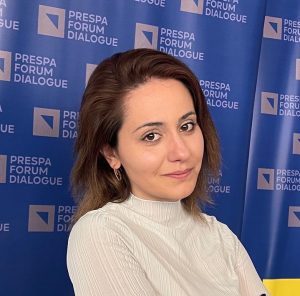 “Lorenca is a Doctor in Diplomacy, she got graduated from Center of Diplomatic and Strategic studies in Paris last year and currently is serving as a Diplomat,into the rank of First Secretary at the Albanian Embassy in Netherlands. In February 2021, she was a youth representative of France at the 25th Assembly in New York, United Nations headquarters. What distinguishes the work experience and engagement is her internship experiences at the Embassy of Lebanon in Paris and the Albanian Embassy in France.”
“Lorenca is a Doctor in Diplomacy, she got graduated from Center of Diplomatic and Strategic studies in Paris last year and currently is serving as a Diplomat,into the rank of First Secretary at the Albanian Embassy in Netherlands. In February 2021, she was a youth representative of France at the 25th Assembly in New York, United Nations headquarters. What distinguishes the work experience and engagement is her internship experiences at the Embassy of Lebanon in Paris and the Albanian Embassy in France.”
Works Cited & Other Sources
“Developing social and emotional skills through non-formal learning”.
https://joint-research-centre.ec.europa.eu/system/files/2020-12/policy_brief_non_formal_learning.pdf
, “Current situation of Non-Formal EducationRecommendations on how to validate and recognizethe Non-Formal EducationProject: Youth Empowerment Support to Non-Formal Learning – YES2NFL”.
,Norqvist, L., Leffler, E. “Learning in non-formal education: is it “youthful” for youth in action?”. International Review of Education, 2017.
http://umu.diva-portal.org/smash/get/diva2:929208/FULLTEXT01.pdf
,Harris, Judy and Wihak, Christine. “The Recognition of Non-Formal Education in Higher Education: Where Are We Now, and Are We Learning from Experience?”. 2018.
https://files.eric.ed.gov/fulltext/EJ1180057.pdf
https://rm.coe.int/16807023ab
,Petkovic, Sladjana. “Desk study on the value of informal education, with special attention to its contribution to citizenship education, civic participation and intercultural dialogue and learning, European citizenship, peace-building and conflict transformation”. December 2018.
